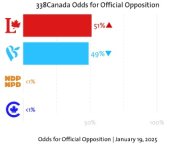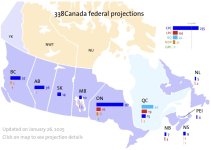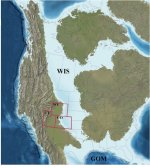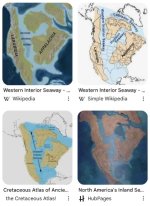Carbon offsets are unreliable, fraud-ridden financial tokens that often fail to make any environmental impact at all. And if Mark Carney gets his way, they’re going to be Canada’s next big industry.
In his carbon reduction pitch to Liberal voters, Carney
pledged himself to “developing and integrating a new consumer carbon credit market” that works with the existing industrial carbon tax, and promised it would bring about price certainty, market efficiency and fiscal neutrality.
Though the details are still scant, it’s a plan to expand the current industrial carbon cap-and-trade system that the Liberals instituted in 2019. Under this system, industrial facilities must bring their emissions under the cap by reducing the amount they pollute and/or
buying carbon credits produced by private companies to subtract from their emissions output on paper.
Where do carbon credits come from? In the mandatory federal cap-and-trade system, they’re handed out by the government to reward under-cap industrial emitters, as well as carbon offset firms that carry out carbon-sequestering activity (such as not cutting down a forest, or switching to green tech). Companies that emit over the cap can lower their net emissions by buying carbon credits from others on the market.
On the wilderness of the open market, credits are voluntarily bought and sold like indulgences for green credibility by large brokers. They’re vetted by carbon auditors, who give them legitimacy.
The past several years have seen the demand for carbon-offsets boom, and Carney’s no doubt aware of that. U.S. investment bank Morgan Stanley
foresees almost unbelievable growth in offsets ahead: it was a $2-billion business in 2022, but it’s expected that will grow to $100 billion in 2030. If Canada can get in early, the thinking likely is, we stand to profit. What Carney doesn’t take into account is that, just as corporate zeal for environmental, social, and governance (ESG) policies is dying, so too might corporate interest in feeble climate reward tokens.
It is a Liberal boondoggle in waiting

apple.news
For one, they’re vulnerable to fraud, even when third-party auditing is involved. In Alberta, which has supervised its own offset market since 2007, the province leaves verification of offset providers to independent auditors. In 2023, it
took one of those independent auditors to court for falsifying paperwork. The person responsible was
fined $10,000.
This is a common enough problem: in the U.S., one major offset firm
simply faked their emissions-reduction data to sell more supposed credits to corporate buyers, and is now facing prosecution. In 2023, more than 90 per cent of the carbon credits approved by American world-leading carbon offset auditor Verra the Guardian were
found to not represent real emissions cuts. A similar problem had
emerged in California: due to dubious math, one in three carbon credits were found by ProPublica to represent no real-world reduction in emissions at all.
Nature adds a layer of compilation to human greed and negligence: in B.C., wildfires
took out some trees that were supposed to be the basis for Mosaic Forest Management’s offset production scheme in 2023. That’s the least of their problems, though. The company later
failed an audit of its emissions reduction measures by a third party, and is now fighting for credibility. Many of the trees it protected under the guise of generating carbon credits, claimed the auditor, were trees that wouldn’t have been logged regardless due to their tricky placement on the landscape.
Finally, offsets can clash with human need. Some carbon offset companies work by buying land and letting it sit, even when people have use for it. This has led to clashes between locals who use that land to grow food with foreign offset firms who simply want to improve their carbon balance. This was the case in B.C. in 2015; the Globe and Mail
reported that multiple companies had been buying up farmland, planting trees on them and prohibiting future landowners from logging them in 100 years. Public shaming at least
put a halt to some of that.
The Liberals have taken meagre steps to solve some of the problems with carbon offsets. It approved a closed list of emissions-reducing activities that offset firms can use to create credits in the federal system — activities that are, supposedly, more scientifically robust than some on the open market. It also banned “greenwashing” last summer to penalize companies that make inaccurate claims about their environmental feats.
But none of this fixes the underlying problem: carbon credits often represent hard-to-quantify activities that are easy to fake. Nor do they carry inherent value: airliners don’t need carbon offsets like they need planes; tech companies don’t need carbon offsets like they need computing capacity. Carbon credits are
losing their appeal in the corporate world already, following in the footsteps of environmental, social, governance (ESG) policies and DEI.







